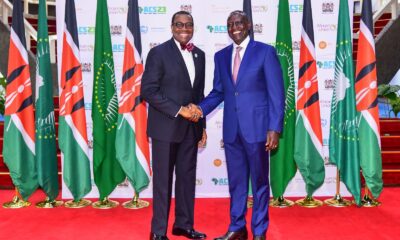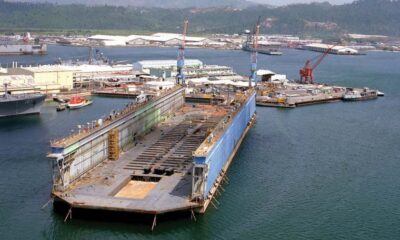The Board of Directors of the African Development Bank Group has approved an equity investment of $20 million in the Africa50 Infrastructure Acceleration Fund I, in support of its target to mobilize private capital for infrastructure across the continent.
The Africa50 Infrastructure Acceleration Fund I is a pan-African infrastructure private equity fund that is mobilizing up to $500 million for investment and value creation in strategic infrastructure sectors. These include power, energy, digital and social infrastructure, transportation, logistics, and water and sanitation.
The fund is sponsored by Africa50, an infrastructure investment platform established by governments and the African Development Bank. Africa50 brings infrastructure project development and financing under one umbrella. Africa50 has a strong track record of investments in the private sector and of projects undertaken under a Public Private-Partnership (PPP) framework.
The mobilization of private capital is critical to closing the infrastructure financing gap in Africa, especially given the limited fiscal space of African governments which currently provide the largest source of infrastructure funding on the continent.
The Africa50 Infrastructure Acceleration Fund I was established as a vehicle to help execute Africa50’s mandate of mobilizing private capital and accelerating further investment flows into African infrastructure by targeting private and institutional investors.
African Development Bank Director for the Industrial and Trade Development Department, Abdu Mukhtar said the Bank’s investment in the Fund underlined its strategic nature and the fact that the Bank prioritizes investing in strategic infrastructure sectors that contribute to closing Africa’s infrastructure financing gap (estimated at $68-108 billion annually).
“The Bank’s investment will support Africa50 to crowd-in private capital into African infrastructure through a private equity fund vehicle that private investors better understand and are more comfortable investing in,” Mukhtar said.
Commenting on the approval, Wale Shonibare, African Development Bank’s Director for Energy Financial Solutions, Policy and Regulations said the Bank’s support for the Africa50 Infrastructure Acceleration Fund I aligned with its High Five objectives. “It also strengthens the Bank’s already existing partnerships with the Africa50 Group on initiatives such as the African Sovereign Investors Forum and the Alliance for Green Infrastructure in Africa,” Shonibare added.
Alain Ebobissé, CEO of the Africa50 Group, said: “We are highly appreciative of the African Development Bank’s support for the Africa50 Infrastructure Acceleration Fund I. We look forward to continuing to work collaboratively with the African Development Bank and other investors to make a meaningful contribution to improving the infrastructure landscape on the continent.”
By leveraging private capital for infrastructure investment, The Africa50 Infrastructure Acceleration Fund I can help create jobs, strengthen healthcare access, improve education access through digital technologies, enhance access to financial services and financial inclusion through fintech investments, and reduce the impact of climate change. The fund is projected to create 3,278 full-time equivalent jobs over the period 2023-2035, including 1,676 jobs for women. In addition, the fund is expected to contribute to fostering regional integration through improvements in transport and logistics infrastructure that can lead to increased inter and intra-regional trade.
The African Development Bank and partners in the new fund will continue to provide growth capital and infrastructure equity to support the urgent need to accelerate private sector funding toward bridging the infrastructure financing gap in Africa.











